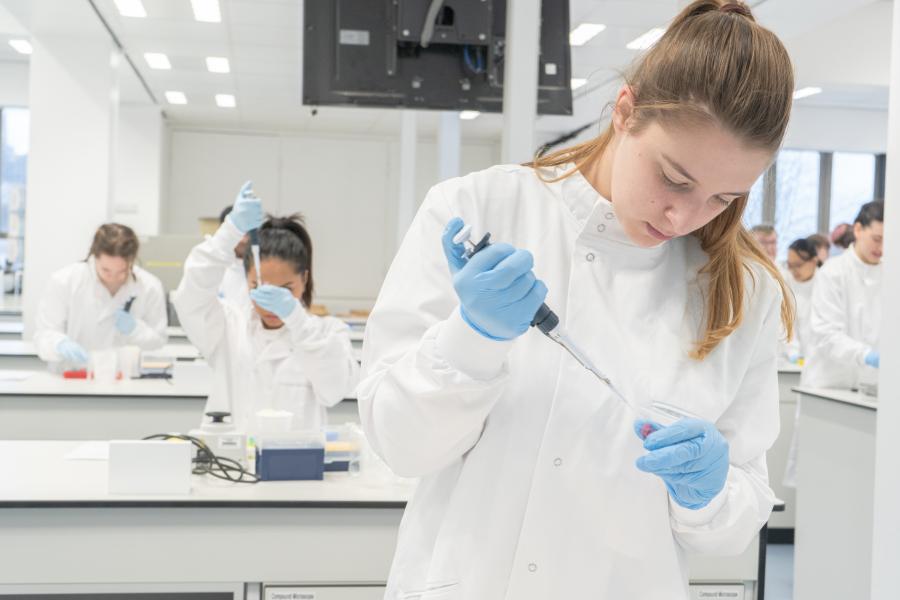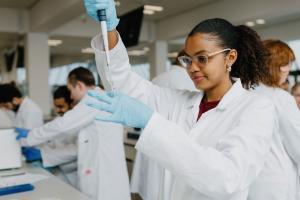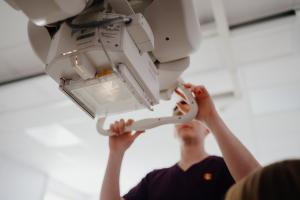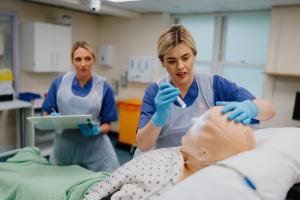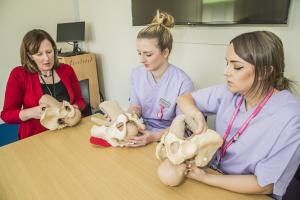What's the difference between Pharmacy & Pharmacology?
Pharmacy and Pharmacology may share a foundation in medicines, but the paths they offer are uniquely yours to explore.
If you're drawn to patient care and want to make a difference in your community, Pharmacy offers a hands-on, people-focused route. If you're curious about how drugs work and want to shape the future of treatments, Pharmacology opens doors to research, innovation, and policy.
At Bangor, both courses are taught by experts and grounded in the latest scientific advancements — so whichever path you choose, you’ll be supported to thrive.
Pharmacy: A Patient-Centred Healthcare Profession
Pharmacy is a healthcare profession that trains students to become pharmacists, who are responsible for the safe and effective use of medicines. Pharmacists work directly with patients, doctors, and other healthcare professionals to ensure medications are used correctly, advising on prescriptions, dosages, and side effects.
Pharmacy graduates usually become licensed pharmacists, working directly with patients in hospitals, community pharmacies, or the pharmaceutical industry, ensuring the safe and effective use of medicines.
In order to become a Pharmacist you will need to undertake an MPharm degree, then foundation year training and a General Pharmaceutical Council (GPhC) Registration exam.
Students focus on the comprehensive journey of medicines, studying drug action, delivery, discovery, and management. The curriculum emphasises the relationship between chemicals and patients, ensuring that the patient's needs and safety are at the forefront of pharmaceutical practice.
Pharmacy students have a patient-focused education. Students participate in placements in real pharmacy settings and simulated environments, alongside workshops, tutorials, and lectures. The curriculum includes laboratory classes and a variety of assessments, such as Objective Structured Clinical Examinations (OSCEs), exams, coursework, and a reflective portfolio to enhance practical skills and critical thinking.
Pharmacology: The Science of How Drugs Work
Pharmacology is the scientific study of drugs, focusing on how they interact with biological systems. Pharmacologists work to understand how drugs are developed, their mechanisms of action, side effects, and potential therapeutic applications.
Pharmacologists enjoy a highly varied career, often starting in laboratory settings, though opportunities exist outside the lab as well. Many pharmacologists begin their careers in academic research or within the pharmaceutical and biotechnology industries. Their roles may also extend to science communication and public engagement, science policy, and regulatory affairs. Additionally, pharmacologists can contribute to clinical research and participate in NHS health technology assessments, playing a crucial role in evaluating and implementing new treatments.
Pharmacology focuses on the study of drug action, including pharmacokinetics, pharmacodynamics, and toxicology. The program emphasises understanding how drugs interact with biological systems and the effects they have on health, incorporating both theoretical knowledge and practical laboratory experience.
The Pharmacology program is typically a three-year BSc that emphasises a strong scientific foundation. Students engage in laboratory classes for practical experience, complemented by lectures, workshops, and tutorials. Assessments consist of exams, coursework, and practical evaluations, ensuring a comprehensive understanding of the subject.
The lecturers at the North Wales Medical School are experts with phenomenal backgrounds and passion for their individual subjects. The facilities at Bangor uni are a some of the best and it has been a privilege to have access to these and work within the North West Cancer Research centre.
I have really enjoyed being at Bangor and love the atmosphere of the uni. It's a small university so you get to know your lecturers and personal tutor and you end up really enjoying going to lectures and having the friendly and welcoming atmosphere. You aren't just another lost student- but you're a valued member and pushed to the best of your ability with incredible support.
Do you have a question about life as a Bangor University student? Our ambassadors will be happy to help you find the answer.
They can tell you more about studying here, about the amazing Clubs and Societies we have, and how they made friends and settled in to life at university.
If you have any questions about the course, our lecturers are on hand to help. Below are some examples of frequently asked questions. Can you think of any more?
- What are the qualities of a successful Pharmacology student at Bangor?
- How can I prepare myself to study Pharmacology at Bangor?
- How will I know that Pharmacology at Bangor is the right choice for me?



